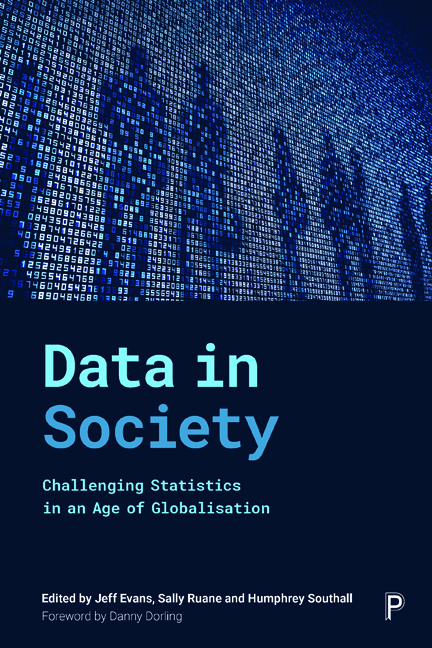Book contents
- Frontmatter
- Contents
- List of figures, tables and boxes
- Notes on contributors
- Foreword
- Preface
- General introduction
- Part I How data are changing
- Part II Counting in a globalised world
- Part III Statistics and the changing role of the state
- Part IV Economic life
- Part V Inequalities in health and wellbeing
- Part VI Advancing social progress through critical statistical literacy
- Epilogue: progressive ways ahead
- Index
21 - Re-engineering health policy research to measure equity impacts
Published online by Cambridge University Press: 30 April 2022
- Frontmatter
- Contents
- List of figures, tables and boxes
- Notes on contributors
- Foreword
- Preface
- General introduction
- Part I How data are changing
- Part II Counting in a globalised world
- Part III Statistics and the changing role of the state
- Part IV Economic life
- Part V Inequalities in health and wellbeing
- Part VI Advancing social progress through critical statistical literacy
- Epilogue: progressive ways ahead
- Index
Summary
Introduction
Health inequalities diminish lives and blight communities. Although the determinants of health inequality have become increasingly well understood, policy makers have repeatedly failed to address the issue effectively, and many public health interventions unintentionally worsen inequalities because they disproportionately benefit those with greater resources. This is a policy failure, but it is also a scientific failure. Policy makers often understand that their decisions have differential impacts across society. However, the analytical tools used to inform policy lack a substantial perspective on equity, focusing on averages rather than social distributions, leading to inequitable solutions.
In an age of social division driven by rising inequality, rigorous new methods for precisely measuring the equity impacts of health and social policy interventions are required. By developing these methods, and using them to assess the effectiveness of major public health and healthcare initiatives, researchers can improve understanding of the structural, behavioural and organisational barriers to delivering equitable health outcomes. A fundamental reorientation of the health policy research endeavour is needed towards helping policy makers reduce health inequalities, with new partnerships between researchers across disciplines, including biostatistics, economics, epidemiology, population-level informatics and ethics. Policy makers will then have the necessary information to judge who gains and who loses from their decisions, and will be enabled to make fairer health policy decisions and to improve health across society.
The need for new approaches
Inequality has been described as our most urgent social problem (Atkinson, 2015), and health inequality as the ‘scandal of our times’ (Dorling, 2013) and ‘the most shocking and inhumane’ of all the forms of inequality (King, 1966). Occupying a lower position in society can cost years of healthy life (Lalonde, 1974; Townsend et al, 1992; CSDH, 2008), and loads pressure onto public services (Barnett et al, 2012; Asaria et al, 2016). The determinants of health inequality are structural (imbalances in wealth, human capital and political power), behavioural (social differences in health-related behaviours, often driven by structural factors) and organisational (inconsistent access to health, education and welfare services) (Townsend et al, 1992). Greater awareness and understanding of these determinants has lifted health equity to prominence on policy agendas across the world, but progress in tackling the problem has been slow, impeded by a lack of effective and coordinated action across all three fronts: structural, behavioural and organizational.
- Type
- Chapter
- Information
- Data in SocietyChallenging Statistics in an Age of Globalisation, pp. 277 - 290Publisher: Bristol University PressPrint publication year: 2019



